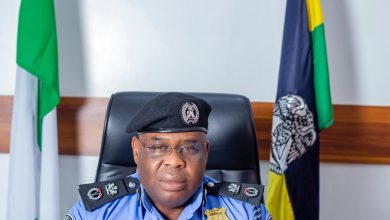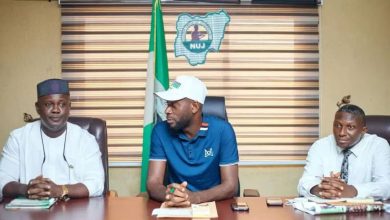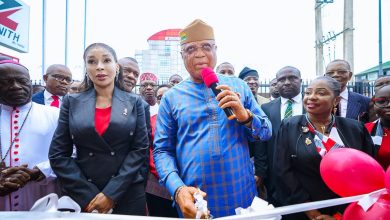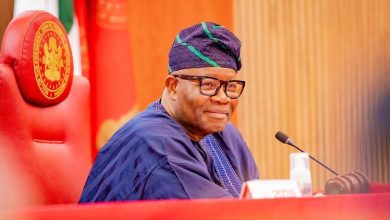Regional Government Will Work Better For Rapid Development – Prof. Essien
...Says Gov Eno's Defection To APC Methodical, Strategic
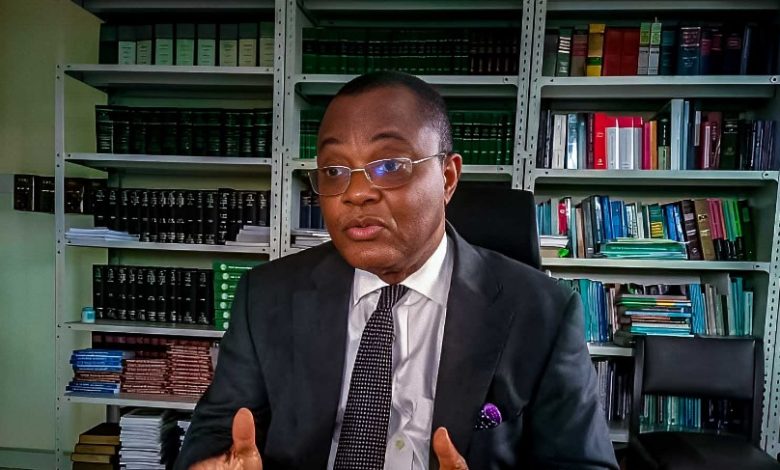
A university don and former vice chancellor of the University of Uyo, Professor Enefiok Essien, has advocated for the adoption of regional government in Nigeria, arguing that it works better in strengthening democracy and enhancing rapid development in the country’s geopolitical zones.
Prof. Essien, a Senior Advocate of Nigeria (SAN), who is a Professor of Law with specialisation in Commercial, Land and Sea, made the advocacy during an exclusive interview with editors of Crystal Express Newspapers in Uyo on the 26 years of uninterrupted Nigeria’s democracy on June 12.
Weighing in on the advantages of operating a regional government in Nigeria, as a measure towards rapid development of the parts, the erudite scholar, who took a cue from the impressive performances of most states in the country, suggested that the Nigerian Constitution can be amended to give the regions same leeway as the states to also develop at their own pace.
“So, the areas for review in the Constitution are many. For instance, I think if we have a way, we should go back to a system where each region will govern itself, so that you will be able to galvanise the resources of your area. You’ll be able to prioritise your needs. Look at the same system that we have now in the United States, because each state is more or less governing itself.
“Each governor of each state now can bring his ingenuity, his creativity to bear, and that’s why you see some states being more developed than others at a higher pace. That is even now that you have a lot of money at the state level, because of the removal of fuel subsidy and all that, which has given more money now to the states, more money to local governments. Some states are using the money received and generating more properly than others,” he added.
Prof. Essien said Akwa Ibom State government, for instance, without being comparative, has, in the last two years of Governor Umo Eno’s administration, as encapsulated in his economic blueprint, the ARISE Agenda, done almost more than some states have done in four years.
He also spoke on the political situation in Akwa Ibom and expressed satisfaction with the method adopted by Governor Umo Eno before his recent defection from the Peoples Democratic Party (PDP) to the All Progressives Congress (APC).
“Governor Umo Eno, PhD, goes to the people. He allows people to buy in. He gives them the chance to express their views. He wants to hear from them. Do they agree? Do they disagree that he wants to do this? He’s even making his intention known before he does it. It’s not a matter of you waking up one day and hearing that he has decamped; he has left, or you see a press release on it. No, he is very methodical, very strategic.
Related: Senate President Akpabio Has Galvanised A’Ibom APC – Apostle Nkono.
“He carries people along so that nobody is taken by surprise. He makes, he keeps his card face up on the table, by going to the people, telling them, ‘Look, this is what I want to do. What is their view; is there any objection. He did that before when he formally declared. So, I don’t think it’s a matter of some people just carrying him, agreeing that he should defect. No, it’s not so. So to that extent, it is democratic. It is good for our democracy,” he explained.
On the concerns expressed in many quarters for the reduction of the operational cost of the National Assembly, the former vice chancellor opined that the membership can be part-time.
He said, “Of course, something may still be said about our presidential system; perhaps that in ours, the members of parliament could be part-time. If you look at the number of sitting days and their inputs into the system, then we can appraise the system. How many hours do they give to the National Assembly, and the amount of work are they doing?
“What productivity? And you may even have some of them that are not as productive as others, but are still earning the same remuneration. So perhaps we may decide to say, okay, because Nigeria’s presidential system is the most expensive, let’s lessen the expenses, and let’s start to think of how we can make it less expensive.”
He was very categorical that Nigeria has fared well in its democratic sojourn so far, saying, “Unequivocally, I think one can say that democracy has fared well in Nigeria. Could it have fared better? Of course, yes, but so far, it has fared well.”

